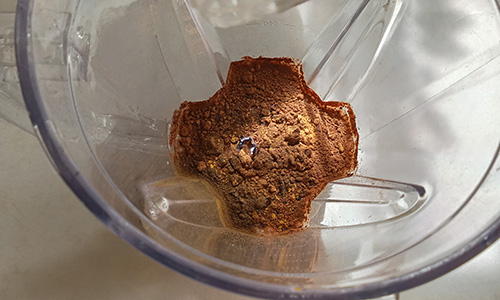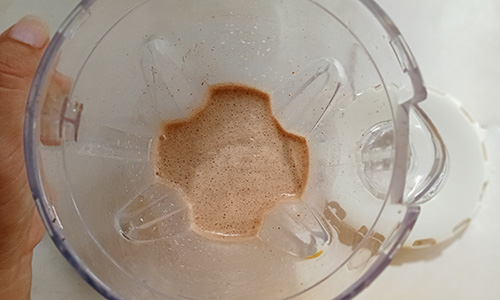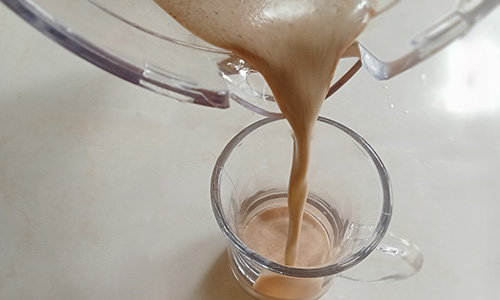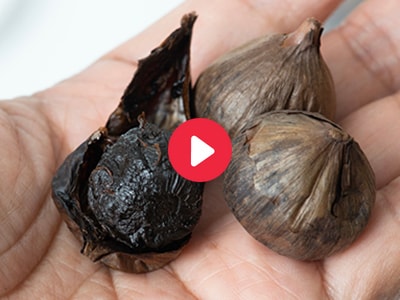
DIY Indigestion Tonic
Occasionally, we may experience upset stomach and bloating, especially after eating a large meal. There might be times we panic, thinking that it is something as serious as a heart attack, when it is just a run-of-the-mill indigestion.
Antacids and sodium bicarbonate are the most common relief for indigestion. Herbal therapies like teas and tonics are also effective in calming the stomach and reducing acid buildup.
What Causes Indigestion?
Indigestion, or dyspepsia, is generally caused by food and drinks, although there might be cases when it is a symptom of a digestive disorder.
Greasy, spicy, and acidic foods, carbonated drinks, alcohol, and coffee are usual triggers of dyspepsia. If you consume too much food or eat too quickly, the digestive system works harder to digest the food. It produces digestive juices that may irritate the tissues and cause stomach discomfort.
Some medications like antibiotics and pain relievers may cause indigestion, as well as iron supplements if taken without food.
Stress and anxiety also unknowingly contribute to indigestion when it disrupts the gut-brain connection, leading to poor digestion.
One easy way to avoid indigestion keeping you up at night is to eat an early dinner.
Pregnant women are likely to experience indigestion and other digestive problems because of hormonal changes. It is very common from the 27th week of pregnancy onwards, as the baby grows and presses against the stomach.
Other more serious causes of indigestion include hiatal hernia, stomach ulcer or H. pylori bacterial infection.
When your gut feels like it’s constantly at odds with you, knowing where to start can be a struggle. I’ve found a collection of digestive protocols that make it easy to address issues like:
- Candida Overgrowth: Bringing balance back to your gut.
- GERD and Acid Reflux: A natural way to calm persistent heartburn.
- Leaky Gut and IBS: Repairing and soothing inflammation.
- Liver Support: A detox-focused plan for better digestion.
- Food Poisoning Relief: Fast solutions for bacterial upsets.
These protocols don’t just tell you what to do—they walk you through every step, using remedies that work. Each chapter feels like it’s been written by someone who truly understands the frustration of digestive issues.
If you’ve ever felt lost on how to tackle bloating, discomfort, or recurring gut problems, click here to see how these practical guides can help. Why keep guessing when you can follow a trusted path to better gut health?
Home Remedies for Indigestion
Everyone experiences indigestion symptoms differently. Depending on the cause, indigestion could last a few minutes to a few hours. It may recur after a few days but should not persist for over two weeks. Otherwise, you must contact your doctor to rule out the causes.
Some herbs offer quick relief and alleviate the discomfort of dyspepsia. Some of the most potent plant roots and mushrooms may help.
Reishi (Ganoderma lucidum)
Reishi is gastroprotective and may help alleviate the discomfort of dyspepsia. It contains polysaccharides and Ganoderic acid A (GAA), which significantly improve gastrointestinal function.
An evidence-based study on non-human samples shows a positive effect of GAA in increasing gastric emptying rate and improvement of the gut-brain connection. The therapeutic effect of the GAA in Reishi is found to significantly improve function dyspepsia.
You can source a trustworthy tincture made from organic, wild-harvested Reishi here.
Plantain (Plantago major)
The leaves of common plantain have been widely used for treating GI problems for centuries. It is effective in reducing stomach acidity to relieve pain associated with dyspepsia. It has fiber that aids in motility and promotes bowel regularity.
Plantain has an antispasmodic property that relieves stomach cramping and an anti-ulcer property that protects the gastric lining and manages ulcers.
Marshmallow Root (Althaea officinalis)
Marshmallow root is also a mucilaginous herb that has been used for a long time in treating respiratory and digestive problems. It is one of the effective home remedies for heartburn and acid reflux and may also help with digestion issues.
Demulcent herbs like marshmallows may lower stomach acidity and soothe an inflamed GI tract to boost and regulate digestive functions.
Turkey Tail (Trametes versicolor or Coriolus versicolor)
Turkey Tail is an edible medicinal mushroom that is chockful of antioxidants, fiber and gut-protective compounds. It contains insoluble fiber that moves food into the digestive system. It also serves as a prebiotic food for the gut bacteria and aids in proper digestion.
Turkey tail extract may help increase the population of beneficial bacteria and reduce the bad bacteria in the stomach. It promotes better digestion, improves overall health and may reduce the frequency of indigestion. Click here to get a high-quality Turkey Tail tincture you can trust.
Chaga (Inonotus obliquus)
Chaga mushroom tea and chaga extract contain compounds that ease digestive tract inflammation. It is also beneficial in fighting harmful bacteria in the gut that cause recurring indigestion. It has been used traditionally for soothing gastritis and treating gastric ulcers.
The polysaccharides in chaga mushrooms increase the growth of good gut bacteria and promote a healthy gut bacterial profile. Chaga powder may soothe indigestion and bloating and prevent stomach infections.
Ginger (Zingiber officinale)
Drinking ginger tea an hour after a meal may prevent indigestion. Ginger facilitates the movement of food in the GI tract to prevent the surge of stomach acid. It also contains compounds that ease bloating and cramping.
Ginger supplementation is considered an effective alternative medicine for functional dyspepsia. Ginger root tea is one of the easiest and most readily available spices in the kitchen for relieving indigestion.
Lion’s Mane (Hericium erinaceus)
Lion’s mane is most popularly known as a medicinal mushroom for the brain and preventing neurological problems. Its brain-supporting polysaccharides may also significantly affect the brain-gut connection to improve digestion and prevent indigestion.
Lion’s mane supplementation is proven to have a beneficial effect on the gut-brain axis according to a study conducted on mice models. It may be effective in managing inflammatory bowel syndrome (IBS) and inflammatory bowel disorder (IBD).
Find a reliable tincture here to make it part of your routine.
Slippery Elm (Ulmus rubra)
Slippery elm bark produces a mucilaginous substance when macerated in water. When taken internally, this gel-like substance coats the esophagus, stomach lining and intestine. It soothes stomach irritation, neutralizes the stomach acid and forms a protective layer in the GI tract, which eventually eases indigestion.
Slippery elm protects the intestines from ulcers and acid reflux, although more studies are needed to validate the initial clinical result. Soaking 1 tsp of slippery elm bark in a cup of water for 10 minutes and drinking it twice daily after meals prevents indigestion caused by hiatal hernia.
One thing I learned recently is sleeping on your left side. It sounds too simple to matter, right? I got the information below from a wellness guide and now I’m sharing it with you.
The truth is, sleeping on your left side keeps stomach acid where it belongs, easing the strain on your digestive system.
If you’ve ever tossed and turned with acid reflux or bloating at night, this small change can make a world of difference. Trust me, once you feel the relief, you’ll wonder why no one told you sooner!
 By sleeping on your left side, gravity can help prevent stomach acid from flowing back up into the esophagus, reducing the likelihood of acid reflux symptoms. This position may be particularly beneficial for individuals who experience nighttime reflux or GERD. Click here to find out more tricks for your health.
By sleeping on your left side, gravity can help prevent stomach acid from flowing back up into the esophagus, reducing the likelihood of acid reflux symptoms. This position may be particularly beneficial for individuals who experience nighttime reflux or GERD. Click here to find out more tricks for your health.
Try it tonight and leave a comment below if it worked for you as well!
Turmeric (Curcuma longa)
Turmeric root and turmeric powder contain natural antimicrobial and anti-inflammatory properties that may be used as an effective treatment for indigestion.
A clinical trial conducted on people with dyspepsia using turmeric and omeprazole found that turmeric may be as effective as the latter in easing indigestion. Further investigation is needed to support the results but the comparable efficacy makes turmeric an efficient option to omeprazole for treating dyspepsia.
Fennel (Foeniculum vulgare)
Fennel is widely used for alleviating stomachache, and managing colic and flatulence in babies. It may help boost digestive function by balancing the stomach acid and improving stool motility. It is also a carminative that eases the spasm in the digestive system and dispels gas.
Eating a few fennel seeds after a meal is practiced in some parts of the world to aid in digestion and prevent gassiness. It is also taken as fennel water, made by boiling 2 tbsp of fennel seeds in a liter of water and soaking it overnight.
However, fennel is not recommended for indigestion in pregnancy.
DIY Indigestion Tonic
Here is a tonic preparation made with the gastro-protective properties of mushrooms for indigestion. The recipe calls for milk; opt for plant-based milk substitutes like almond or coconut.
Please note that whole milk may worsen indigestion and acid reflux. If you should use animal-based milk, go for low-fat or skimmed milk, which is easier to digest.
 Ingredients
Ingredients
- 1 cup plant-based milk of choice
- ½ tsp Reishi powder (or 5 drops of Reishi Tincture)
- ½ tsp Chaga powder
- ½ tsp Lion’s mane powder (or 5 drops of Lion’s mane Tincture)
- ¼ tsp cinnamon powder
- ½ tsp turmeric powder
- ½ tsp coconut oil
- Pinch of sea salt
- 1 tbsp raw cacao powder (optional)
- A natural sweetener, if desired
Steps
- Combine all the ingredients in a blender.

- Blend until smooth.

- Pour into a glass or mug. You may add honey and ice cubes, if desired.

***Alternatively, you may take the tonic warm if you want by simmering it in a saucepan instead of blending it. 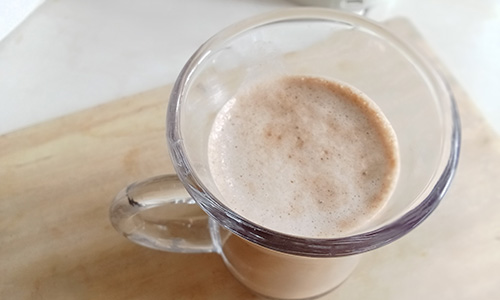
To Use: Take a cup of this milk tonic in the morning as an alternative, or together with your cup of coffee. There is no recommended serving quantity, but always remember to limit your intake and use it only for a short period.
Consult your doctor if you are taking any medications (prescribed or not) and if you have any existing health conditions.
Let’s face it—tracking down all the herbs and mushrooms we’ve talked about here can be a challenge. Reishi, Turkey Tail, Plantain, Slippery Elm, Marshmallow, and Lion’s Mane are incredible for gut health, but sourcing them all, ensuring they’re free of pesticides, and preparing them properly takes time and effort that not all of us have.
That’s where the Balanced Gut Tincture comes in. It combines these powerhouse ingredients into one convenient, ready-to-use formula. Crafted by one of America’s most trusted herbalists, every ingredient in this tincture is either wild-harvested or organically grown—something you won’t find in your typical store-bought remedies.
What’s more, imagine a time when pharmacies are emptied, and health resources are scarce. Having this tincture at your fingertips could be the safety net you didn’t realize you needed.
Why risk letting digestive discomfort spiral into bigger problems when you can have a trusted solution on hand?
Take control of your gut health now. Click here to explore this expertly crafted tincture.

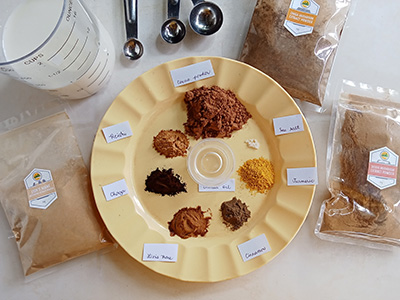 Ingredients
Ingredients